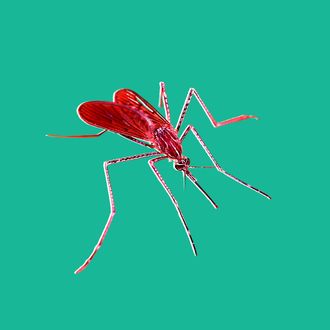
Zika is, as you’ve no doubt heard by now, associated with microcephaly, the congenital defect in which a baby’s head is abnormally small. During pregnancy, as the fetal brain grows, the head grows with it, and it’s thought that microcephaly occurs because the brain stops developing prematurely.
And yet the birth defects that are so far associated with Zika are turning out to be far more damaging than those that arise from microcephaly, reports the Wall Street Journal. Within the last six months, at least a thousand babies have been born with symptoms of the virus, which, as writers Luciana Magalhaes and Betsy McKay describe it, is considerably more vicious than microcephaly, “eat[ing] away at the fetal brain,” particularly the regions associated with cognition and vision.
Not all cases of non-Zika microcephaly are severe, but, so far, the brain damage in “nearly all” of Brazil’s Zika babies has been. “These aren’t just microcephaly, like a slightly small head,” Jeanne Sheffield of the Johns Hopkins School of Medicine told the Journal. “The brain structure is very abnormal.”
This news comes just as the weather is warming in most parts of the northern hemisphere, and the Journal notes that health workers are readying for more cases of Zika to hit the U.S. But thanks to certain advantages — things as seemingly small as screens on windows, and as large as superior monitoring of infectious diseases — health officials do not expect an outbreak quite like the current one in Brazil to repeat itself in the U.S. (Though earlier today, a man in Puerto Rico became the first to die of the virus on U.S. territory.)
Still, scientists are keeping a careful watch on the babies already born with Zika, as the virus may continue to reveal itself as these infants age. For example, Magalhaes and McKay tell the story of one baby, named Geovanna, whose brain shows signs of damage in the frontal lobe, an area associated in older brains with things like planning and impulse control. As these are behaviors that develop later in a child’s life, the damage to Geovanna’s brain may not become clear until many years from now. “This is all very new,” a physician named Clicia Nunes Santos Ferreira told the Journal. “We do not know what will become of this generation.”

